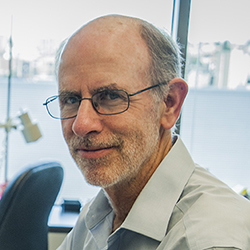Morgan Lab
The Morgan laboratory pioneered the use of C. elegans- a simple invertebrate - to understand the relationship between mitochondrial dysfunction and anesthetics. By investigating how volatile anesthetics trigger a range of behaviors in mutant animals, Morgan identified key molecules that control how C. elegans responds to anesthetics. His laboratory is actively investigating molecules that can reverse the shortened life spans and neurological defects of animals with mitochondrial dysfunction.
Morgan's team is using the same animal to understand anesthesia's possible long-term effects on newborns and infants.
The Morgan laboratory works closely with Dr. Margaret Sedensky's laboratory to understand why a mouse with a particular mitochondrial defect is sensitive to gas anesthetics. Morgan is also exploring how this defect causes cells in particular brain regions to degenerate - a hallmark of mitochondrial disease in children.
In addition to his research, Morgan is a pediatric anesthesiologist who cares for many children with mitochondrial disease at Seattle Children's Hospital.
Partnership Opportunities

Phil Morgan, MD
Phil Morgan, MD, received his undergraduate degree from Caltech and an MS in Molecular Biology from the University of Colorado. He is a principal investigator at Seattle Children's Research Institute and a professor in the Department of Anesthesiology and Pain Medicine at the University of Washington. He came to Seattle Children's in 2008 after working more than 20 years at Case Western Reserve University, where he and Margaret Sedensky, MD, became recognized as leaders in understanding anesthetic interactions in mitochondrial disease. He received an MD from the University of Colorado School of Medicine. He completed a residency and fellowship in anesthesiology at the University Hospitals of Cleveland and a fellowship in pediatric anesthesiology at the University of Washington.
-
Nicole Brockway
Laboratory Technician
-
Beverley Dancy, PhD
Postdoctoral Scholar
-
Ernst-Bernhard Kayser, PhD
Laboratory Director
-
Beatrice Predoi, MD
Laboratory Technician
-

Christian Woods
Research Associate III
